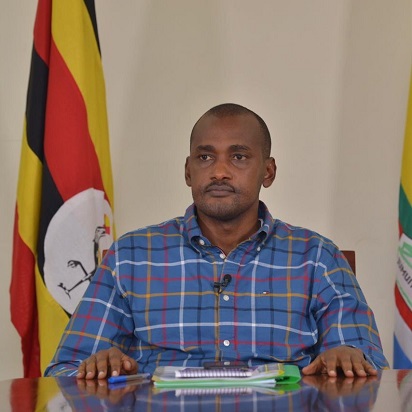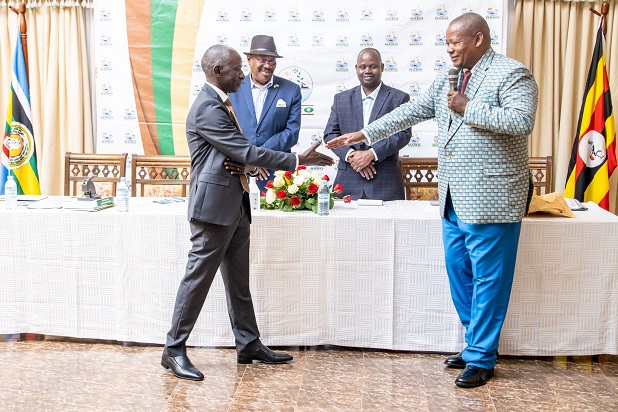Cassava farmers organized under the Acholibur Parish Project (APP) in Pader district are complaining of the low price of cassava per kilogram being offered by Bukona Agro processors Limited.
The APP, an initiative of Archbishop John Baptist Odama, was started in 2017 with the purpose of commercializing cassava growing and increasing financial and food security in Acholi and Lango sub-regions.
Leaders of the project say since its inception, they have mobilized more than 10,000 farmers from Pader district, to embrace the cassava commercialization and industrialization project.
Owing to its popularity, Gulu archdiocese in April 2021 signed a deal to supply Bukona with 100,000 kilograms of dry cassava chips to Bukona Agro processors Limited based in Nwoya district for the production of green fuel and ethanol.
According to the deal, the farmers would sell each kilogram of dry cassava chips at 550. The farmers are now saying the price of shillings 550 and 600 per kilogram is very low and should be increased to at least shillings 900 or 1000. On the open market, a kilogram of dry cassava chips ranges from 1,200 to 1,500.
Joyce Lakot, a lead farmer heading other cassava farmers in Latanya and Porogali, is among the first lot of farmers who received planting materials under the APP project and has been growing cassava for the past four years.
Lakot says she started selling cassava to Bukona in 2021, but calls for an increase in the price per kilogram. She says the only benefit is that she is assured of a ready market, otherwise, the expenses incurred in preparing the dry cassava decimates all the profits.
Lakot believes that farmers can earn some decent profit if the price per kilogram is increased to a minimum of 700 shillings per kilogram.
Esther Acayo, the lead farmer in Acholibur, says Bukona pays 600 shillings per kilogram of dry cassava chips when a farmer transports it to their industry in Nwoya district, and 550 shillings when Bukona travels to Pader to buy the cassava themselves.
Acayo explains that there are many expenses they incur when selling the cassava chips to Bukona, which makes the offer of 600 shillings per kilogram unreasonable.
The expenses include; transporting the cassava from her garden, buying packing bags, paying workers to peel, dry and wash the cassava, paying loaders, and for fees indicating where the cassava is being taken, and paying transport for the cassava to the factory.
Acayo explains that before she joined the APP project, she would set the price of her dry cassava chips herself and get meaningful profits, unlike now that the price is dictated by the buyer.
According to Acayo, many farmers are complaining about the low price, and want it increased.
Walter Omona, the LCI of Central Cell A in Acholibur Town Council, says many farmers had joined the cassava project, but agreed that the price offered by Bukona is very low and has to be increased if farmers are to benefit from it.
“The cassava farmers here have a lot of cassava, but their disappointment is that the price being offered is still very low.” Omona said. “This is acting negatively on the production, I think the leaders should consider this if the growing of cassava is to have meaning.”
Attempts to get a comment from Fr. Matthew Okun Lagoro, the Project Manager of the APP was futile as his phone went unanswered.
Last month, Uganda Development Corporation (UDC) received a land donation for the establishment of a starch factory in Acholibur Town Council, Pader District.
The factory is expected to consume 400 tons of fresh cassava and 50 tons of dry cassava chips daily, for the production of ethanol and starch.
-URN





